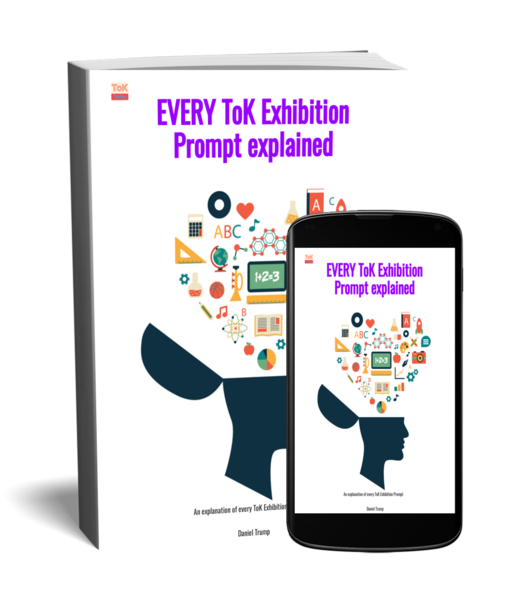What are the examiners thinking ? (Nov 24 Subject Report)
Key Findings from the November 2024 ToK Subject Report:
What Teachers Need to Know
The November 2024 Theory of Knowledge (ToK) Subject Report has been released, and it’s packed with insights that can help us better support our students in both the Essay and the Exhibition. In this blog post, I’ll summarise the key findings from the examiners, focusing on what we as ToK teachers need to keep in mind as we guide the next cohort through the course.
The ToK Essay
The Essay: General Performance
Examiners were broadly positive about the overall quality of the essays submitted. They observed improved clarity, coherence, and factual accuracy, with fewer students exceeding the 1600-word limit. Most students showed a good grasp of how to unpack the prescribed titles and demonstrated growing confidence in argumentation.
Key Recommendation 1: Move Beyond Claim vs Counterclaim
The examiners continued to highlight an over-reliance on the claim-counterclaim structure. While this approach does demonstrate awareness of different perspectives, it often results in shallow evaluation and even contradictions. A more effective strategy is for students to evaluate the merits and limitations of knowledge arguments in a nuanced and integrated way, rather than presenting them as binary opposites.
Key Recommendation 2: Use and Analyse ToK Concepts
It’s encouraging that more students are incorporating the 12 core ToK concepts and components of the knowledge framework. However, examiners noted that these are often used superficially. We should remind our students to go beyond name-dropping concepts and instead analyse and apply them meaningfully within their arguments.
Key Recommendation 3: Develop Implications
The effective use of implications was identified as a major distinguishing feature of excellent essays. Students should be encouraged to ask:
So what?
Why does this matter?
What are the wider consequences?
These implications can relate to other areas of knowledge or to core ToK concepts such as ethics, scope, or methodology. Importantly, they should be integrated throughout the essay—not just mentioned in the conclusion.
Key Recommendation 4: Examples Matter
Examiners reiterated that the effectiveness of an example depends on its relevance and its ability to support an argument. Examples should be:
Directly relevant,
Non-hypothetical,
Ideally drawn from Diploma Programme subjects or real-life experiences,
Used to support knowledge claims—not simply to illustrate them.
Whilst familiar examples like the Vitruvian Man and heliocentrism are still acceptable, originality in example choice adds both freshness and argumentative strength. Students may benefit from building a personal portfolio of examples throughout their ToK course.
Academic Integrity and Referencing
The report raised concerns about essays that appeared to rely on templates or AI-generated outlines. Teachers are urged to supervise the writing process closely and ensure proper referencing. The emphasis on referencing was notably stronger in this session’s report—this is something we’ll be watching out for more closely going forward.
The Exhibition
General Performance
Turning to the Exhibition, examiners noted a clear improvement in students’ understanding of the task. Object selection showed greater variety and stronger connections to the prompts. Importantly, the shift away from personal objects towards items that serve a specific epistemological purpose was described as a very positive development.
Key Recommendation 1: Describe Objects in Relation to ToK Issues
Descriptions should be brief and always directly relevant to the prompt. Too many students still over-explain the object or fail to link it to a knowledge issue. The report put it well: the examiner should be able to infer the prompt from the way the object is discussed.
Key Recommendation 2: Clarify the Difference Between Content and Context
This was one of the most striking clarifications in the report. “Content” refers to what the object says or represents, while “context” refers to its existence in time and space—when, where, why, and for whom it was produced. Both are important, but context grounds the object in the real world, which is essential for showing how ToK manifests beyond the classroom.
Key Recommendation 3: Avoid Fictional Worlds
Students who chose fictional or hypothetical objects often produced weaker exhibitions. Real-world items allow for more grounded and effective exploration of knowledge questions. Students should be encouraged to avoid literary or fantasy-based choices unless they can make a very strong real-world link.
Key Recommendation 4: Respond to the Whole Prompt
Many students still ignore key words or phrases in the prompts. For example, with Prompt 12 (“Is bias inevitable in the production of knowledge?”), some students simply gave examples of bias without engaging with the notion of inevitability. Teachers should emphasise that all parts of the prompt matter—“How”, “Why”, “To what extent”, and so on.
Key Recommendation 5: Justify the Inclusion of Each Object with Evidence
Justification remains a weak point. Students need to explicitly explain why they included each object and how it helps address the prompt. Useful sentence starters include:
“This object contributes to my exhibition because…”
“This shows how knowledge is shaped by…”
These claims should be supported with evidence—whether from academic sources, media, or the student’s own experience.
Final Notes for Teachers
A few other takeaways from the report:
The use of core or optional themes can help guide object choice, though personally, I’m not fully convinced of its necessity.
Teach students to treat each prompt as an ongoing debate, not a straightforward question.
Encourage the routine use of evidence in class discussions and written tasks.
Ensure students give equal attention to all three objects.
Remind students that word count matters. Aim for concise, non-repetitive commentaries.
If you’re looking for more support, don’t forget to check out the free four-part course on structuring the Exhibition, linked here.
For ideas on how to approach every Exhibition prompt.take a look at my book, Every ToK Exhibition Prompt Explained.
I hope you’ve found this summary useful. As always, feel free to reach out with comments, and stay tuned for more updates and resources from ToKToday.
Daniel, Lisbon, June 2025


